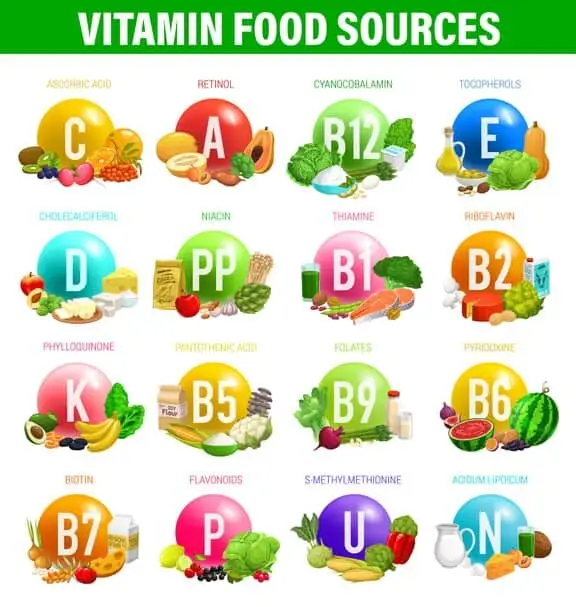The Role of Micronutrients in Preventing Chronic Disease and Supporting Overall Health

Introduction
Maintaining good health and preventing chronic diseases are primary concerns for individuals worldwide. While macronutrients like carbohydrates, proteins, and fats are essential for energy and growth, micronutrients play a vital role in supporting overall health and preventing chronic diseases. Micronutrients include vitamins, minerals, and trace elements that are required in small quantities but are crucial for various physiological functions. In this article, we will explore the significant role of micronutrients in preventing chronic diseases and supporting overall health, highlighting specific foods, including microgreens, that provide these essential nutrients.
Antioxidant Protection
Micronutrients, such as vitamins A, C, and E, along with minerals like selenium and zinc, act as antioxidants in the body. They neutralize harmful free radicals and reduce oxidative stress, a process linked to the development of chronic diseases such as cardiovascular diseases, cancer, and neurodegenerative disorders. Foods rich in antioxidants include:
- Vitamin A: Carrots, sweet potatoes, spinach, and microgreens like kale microgreens.
- Vitamin C: Citrus fruits, strawberries, bell peppers, and microgreens like broccoli microgreens.
- Vitamin E: Nuts, seeds, spinach, and microgreens like sunflower microgreens.
- Selenium: Brazil nuts, seafood, whole grains, and microgreens like radish microgreens.
- Zinc: Oysters, beef, poultry, beans, and microgreens like pea microgreens.
Immune System Support
Micronutrients play a critical role in supporting a robust immune system. Vitamin C, vitamin D, zinc, and selenium are particularly important for immune function. Foods that provide these nutrients include:
- Vitamin C: Citrus fruits, berries, kiwi, bell peppers, and microgreens like micro cilantro.
- Vitamin D: Fatty fish like salmon and mackerel, fortified dairy products, and microgreens like micro kale.
- Zinc: Shellfish, lean meats, legumes, nuts, and seeds, and microgreens like micro radish.
- Selenium: Brazil nuts, seafood, whole grains, eggs, and microgreens like micro basil.
Bone Health
Micronutrients are crucial for maintaining strong and healthy bones. Calcium, vitamin D, and magnesium play essential roles in bone formation and mineralization. Foods rich in these nutrients include:
- Calcium: Dairy products, leafy greens, fortified plant-based milk, tofu, and microgreens like micro arugula.
- Vitamin D: Fatty fish, fortified dairy products, fortified cereals, and microgreens like micro broccoli.
- Magnesium: Spinach, almonds, cashews, whole grains, legumes, and microgreens like micro amaranth.
Heart Health
Several micronutrients contribute to heart health and help prevent cardiovascular diseases. Omega-3 fatty acids, B vitamins, and minerals like potassium, magnesium, and calcium are important for maintaining heart health. Foods rich in these nutrients include:
- Omega-3 fatty acids: Fatty fish like salmon, sardines, and trout, flaxseeds, chia seeds, walnuts, and microgreens like micro radish.
- B vitamins: Whole grains, leafy greens, legumes, meat, dairy products, and microgreens like micro cilantro.
- Potassium: Bananas, oranges, tomatoes, spinach, potatoes, and microgreens like micro beet.
- Magnesium: Dark chocolate, nuts, seeds, whole grains, leafy greens, and microgreens like micro Swiss chard.
- Calcium: Dairy products, leafy greens, fortified plant-based milk, tofu, and microgreens like micro broccoli.
Cognitive Function
Micronutrients are vital for brain health and cognitive function. Omega-3 fatty acids, B vitamins, and antioxidant vitamins are particularly important. Foods rich in these nutrients include:
- Omega-3 fatty acids: Fatty fish like salmon, sardines, and trout, flaxseeds, chia seeds, walnuts, and microgreens like micro radish.
- B vitamins: Whole grains, leafy greens, legumes, meat, dairy products, and microgreens like micro cilantro.
- Vitamin C: Citrus fruits, berries, kiwi, bell peppers, and microgreens like micro broccoli.
- Vitamin E: Nuts, seeds, spinach, and microgreens like sunflower microgreens.
Overall Well-being
Micronutrients also contribute to overall well-being and mental health. Research suggests that deficiencies in certain micronutrients, such as iron, zinc, and vitamin D, may be linked to an increased risk of depression and mood disorders. Magnesium, involved in over 300 biochemical reactions in the body, is important for regulating mood and reducing stress. B vitamins, such as thiamin, riboflavin, and niacin, are necessary for energy production and support mental clarity. Incorporating microgreens into your diet can add an extra nutritional punch. For example:
- Iron: Microgreens like micro spinach and micro kale are excellent sources of iron.
- Zinc: Microgreens like micro radish and micro cilantro provide a good amount of zinc.
- Vitamin D: Microgreens like micro broccoli can contribute to your vitamin D intake.
Conclusion
Micronutrients are essential for preventing chronic diseases and supporting overall health. By incorporating a diverse range of foods rich in micronutrients into your diet, including fruits, vegetables, whole grains, lean proteins, and microgreens, you can ensure that your body receives the necessary vitamins, minerals, and antioxidants it needs. These nutrients play crucial roles in antioxidant protection, immune system support, bone health, heart health, cognitive function, and overall well-being. Prioritize a balanced and varied diet to optimize your micronutrient intake and promote long-term health.
Disclaimer
The information provided in this article is for educational and informational purposes only and is not intended as medical advice. It is not a substitute for professional medical advice, diagnosis, or treatment. Always seek the advice of a qualified healthcare provider with any questions you may have regarding a medical condition. The author and publisher of this article are not responsible for any adverse effects or consequences resulting from the use of any suggestions, preparations, or procedures described in this article.




